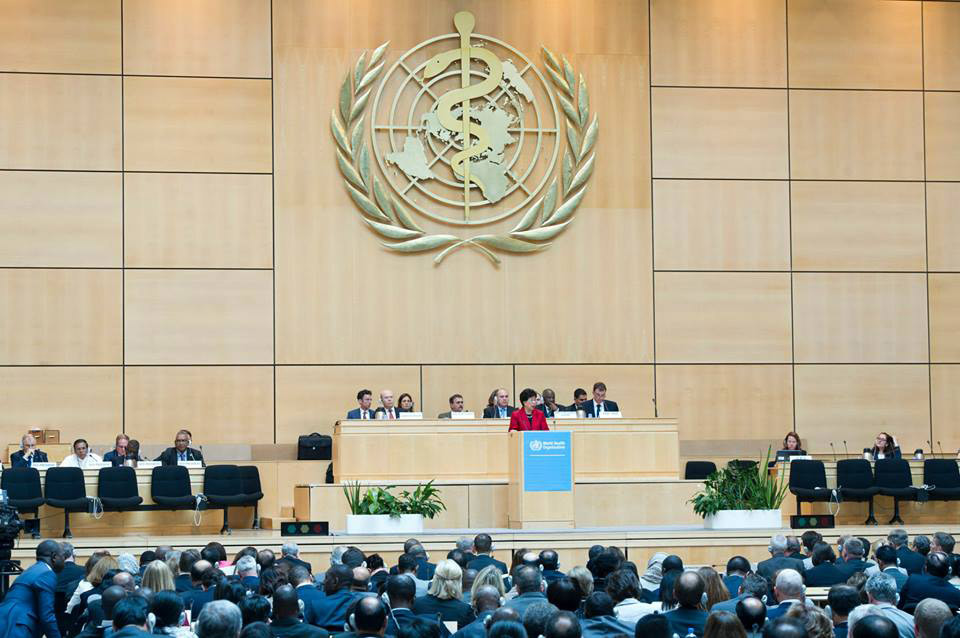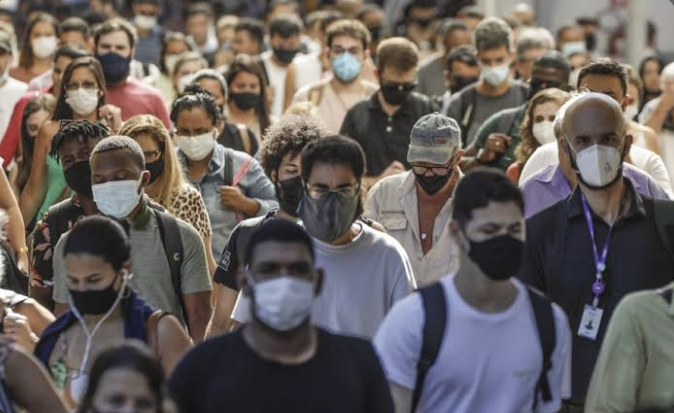The World Health Organization came under heavy criticism during the Ebola outbreak and the COVID-19 pandemic, and it also accumulated great achievements, such as the eradication of smallpox
In April 1945, politicians from all over the world gathered in San Francisco, United States, to create the United Nations. At the meeting, the leaders of Brazil and China proposed creating another global organization: one dedicated specifically to global health, not global politics.
The World Health Organization was born three years later, when its constitution entered into force on April 7, 1948, exactly 75 years ago. WHO headquarters in Geneva, Switzerland. There are also six regional offices and another 150 in various countries around the world.
The law states that health is a right for every human being “without distinction as to race, religion, political belief, economic or social status,” and that “the health of all peoples is fundamental to achieving peace and security.” “.
“We will undoubtedly face more frequent and serious health threats in the future,” Wafaa al-Sadr, a professor of epidemiology and medicine at Columbia University in New York, said in an interview with DW.
“We have to work hard to come together to confront these health threats. That means thinking beyond national priorities, that means thinking about shared priorities, and most importantly, it means supporting organizations like the World Health Organization that work for the collective good.”
In its 75-year history, the WHO, led by Director-General Tedros Adhanom Ghebreyesus since 2017, has had great successes — as well as failures.
Smallpox eradication
One of the greatest successes in the WHO’s quest to ensure the well-being of the world’s population came in 1980, when the organization officially declared the eradication of a common, centuries-old but deadly infectious disease.
“Perhaps the most notable success has been the eradication of smallpox, the only human disease that has been eradicated,” says Al-Sadr, who also leads the global initiative at Columbia University’s Mailman School of Public Health. “While there were others involved in this effort, the World Health Organization played a major role in galvanizing the world around this goal,” he says.
Christoph Gradmann, a professor of medical history at the University of Oslo in Norway, believes that smallpox eradication is an excellent example of how the WHO operates at its best: in situations of political compromise. “When member states are not on the same page about how to move forward, the organization is paralyzed,” he says.
“During the Cold War, there was broad consensus between the two blocs (led by the US and Russia) that smallpox eradication was a goal that needed to be addressed. The WHO saw its greatest successes when members agreed on which projects were worth implementing and how,” Gradman explains.
Ebola outbreak
Many experts agree that the 2014 Ebola virus outbreak in Guinea, Liberia and Sierra Leone was an example of less quality work by the WHO. The organization has been criticized, among other things, for not responding quickly enough to address the pandemic.
But Sadr says much of the criticism after the outbreak, which ended in 2016, was due to a misunderstanding of how the WHO worked. “There were unrealistic expectations for the WHO, as many expected it (the organization) to go aggressively into the affected countries to tackle the outbreak. This is not within the scope of the WHO. Their role is to direct the response, to develop the guidance, but not to go into a country to help in dealing with a specific health threat,” he says.
Gradman agrees. The World Health Organization is a democratic organization. It is not a global health police for rapid intervention,” he explains. In fact, the WHO does not have the authority to act with a member state unless it asks for help.
However, Rudiger Kretsch, WHO’s director of health promotion, says that after the Ebola epidemic from 2014 to 2016, the organization made significant changes to its structure. One example is that they now rely less on national governments for important health information, thus reducing the chances of missing the start of another serious disease outbreak.
“We also have collaborations with tech companies. They can tell us about the outbreak before any official government information comes out, saying ‘we’re seeing a lot of people looking for symptoms of this disease.’ We also use satellite imagery from space agencies such as the European Space Agency (Europe) and the European Space Agency. NASA (USA), which can show us areas where many people have a high temperature, ”says Crick.
For Creech, the WHO’s widely criticized response to the Ebola epidemic led to a general “shift” in the organization.
The failed attempt to eradicate malaria
Abandoning the attempt to eradicate malaria in the 1960s is another example of what some consider a failed job. The World Health Organization launched the Global Malaria Eradication Program (GMEP) in 1955.
It looked promising, with 15 countries and one territory having eradicated the disease. But there has been little or no progress in sub-Saharan Africa under the programme, and in many places the failure to maintain the GMEP has led to a resurgence of the disease. In 1969, the program was discontinued.
“GMEP has brought the WHO to the brink of bankruptcy,” says Gradman. “Member states lost confidence in the program while it was still going on and withdrew funding,” he says.
One reason eradication has not been successful, Gradman explains, is that malaria is not only a human disease, but has reservoirs in nature. This distinguishes it from smallpox, for example.
source: capital Cities

“Wannabe internet buff. Future teen idol. Hardcore zombie guru. Gamer. Avid creator. Entrepreneur. Bacon ninja.”





